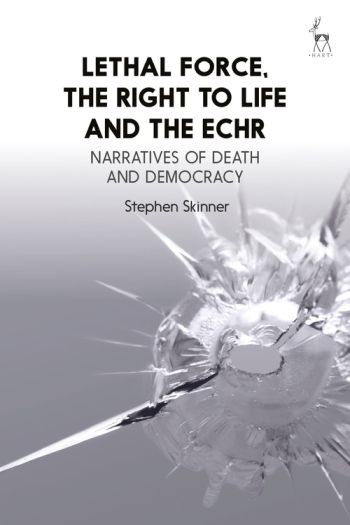Lethal Force, the Right to Life and the ECHR: Narratives of Death and Democracy
ISBN13: 9781509946693
Published: February 2021
Publisher: Hart Publishing
Country of Publication: UK
Format: Paperback (Hardback in 2019)
This is a Print On Demand Title.
The publisher will print a copy to fulfill your order. Books can take between 1 to 3 weeks. Looseleaf titles between 1 to 2 weeks.
In its case law on the use of lethal and potentially lethal force, the European Court of Human Rights declares a fundamental connection between the right to life in Article 2 of the European Convention on Human Rights and democratic society. This book discusses how that connection can be understood by using narrative theory to explore Article 2 law's specificities and its deeper historical, social and political significance. Focusing on the domestic policing and law enforcement context, the book draws on an extensive analysis of case law from 1995 to 2017. It shows how the connection with democratic society in Article 2's substantive and procedural dimensions underlines the right to life's problematic duality, as an expression of a basic value demanding a high level of protection and a contextually limited provision allowing states leeway in the use of force.
Emphasising the need to identify clear standards in the interpretation and application of the right to life, the book argues that Article 2 law's narrative dimensions bring to light its core purposes and values. These are to extract meaning from pain and death, ground democratic society's foundational distinction between acceptable force and unacceptable violence, and indicate democratic society's essential attributes as a restrained, responsible and reflective system.
Reviews
“Skinner's book is challenging but rewarding. It is both theoretically and doctrinally complex, and deploys sophisticated techniques from legal theory, socio-political theory and interpretative analysis core to which is a reading of Cover and Paul Ricoeur. But at its centre is an important premise: the connection between the right to life under article 2 and democratic society in the context of the use of force by the state in the name of the rule of law – and how that connectedness goes to the very identity of a democratic society.” - Christopher Stanley, Law Society Gazette
“Stephen Skinner's book has contributed significantly to our understanding of the vital democratic standards that underpin the right to life, as well as to our understanding of democracy itself … This book is a difficult and challenging read for lawyers as well as social and political theorists. It takes them out of their comfort zone – as it is meant to – but the effort is highly rewarding since it speaks to each discipline about one of the most important features of life in a democracy and one that is subject to endless debate.” - Michael O'Boyle, Former Deputy Registrar, European Court of Human Rights, European Convention on Human Rights Law Review
